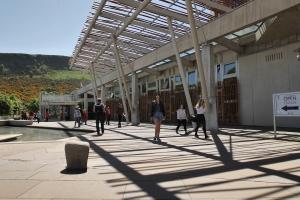
The environmental challenges facing our planet have never been more acute. SEFARI research helps to show how we can protect and restore our natural capital – our soils, biodiversity and ecosystems – and develop effective ways to manage the land and water to improve environmental condition. SEFARI works to better understand how biological, chemical and physical processes can allow us to tackle climate change, adapt to changes coming our way, and build a more resilient and well-functioning environment.
Sector Contact

Case Studies

Online educational activities and resources are needed more than ever at the moment to help with home schooling. In this blog, find out how SEFARI is trying to help by making our educational resources more accessible and discover a few of our activities on food, agriculture and the environment that are either available now or are coming very soon.
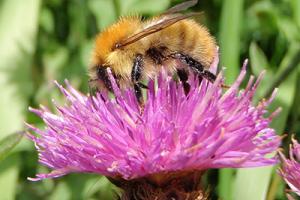
Lorna Cole, SRUC summarises a recently published review she undertook with 21 other pollinator experts across 18 European countries. Insect pollinators continue to decline across Europe despite the Common Agricultural Policy’s increased focus on environmental protection. In response, this group of experts are calling for the improved quality of wildlife habitats through more targeted management and a robust monitoring framework, and a diversity of habitats to meet the resource requirements of our pollinating insects.
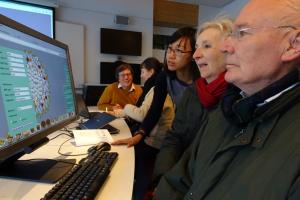
Despite national dietary guidelines, our typical diet still contains too many calories, saturated fat, salt and sugar, whilst having insufficient amounts of fibre, fruits, vegetables and fish. Advice for healthier diets proliferates, but many people may not know how to make sense of all these messages, how reliable they are and how to use them in a retail environment where food producers use sophisticated marketing strategies to promote specific (and often unhealthy) products.
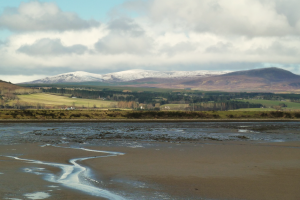
The threat to biodiversity is increasingly recognised as a global challenge on a par with climate change. Indeed, the two threats are linked, climate change affects biodiversity and the current Scottish Government Programme for Government notes that “biodiversity loss and the climate emergency are intimately bound together”.
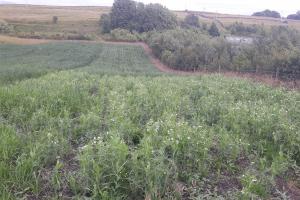
In this blog, we are delighted Dr Alison Karley is able to share with us details of her recent Responsive Opportunity project, during which she visited the island of Lismore to discuss intercropping and the benefits it can have for agricultural sustainability.
The SEFARI Gateway Responsive Opportunity Fund is designed to increase the visibility of the invaluable contributions the Strategic Research Programme makes towards sustainable economic growth and improving the lives of people in Scotland and beyond.
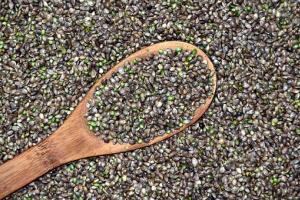
Facing current environmental emergencies, governments worldwide have set themselves ambitious targets to reduce greenhouse gas (GHG) emissions at national levels. Scotland is eager to make a pivotal contribution by setting a target of net-zero GHG emissions by 2045 and to reduce emissions by 75% by 2030. This calls for a holistic approach across industry, research, education, government, as well as changing individual behaviour. Increasing the extent of agriculture diversity could be a key component in agriculture’s response towards the mitigation of GHG emissions. In this blog we highlight how the emerging hemp industry has an innovative opportunity to contribute.
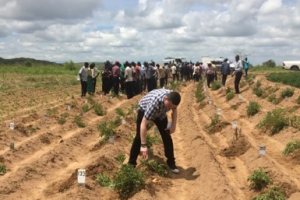
Finding ways to reduce and cope with the impact of climate change is vital to us all. In this blog, SEFARI researchers outline their ongoing work to find new ways to help; firstly, discussing how grasses have an important role in carbon sequestration and then outlining how a better understanding of crop genetics will enable us to cope with climate change and improve food security.
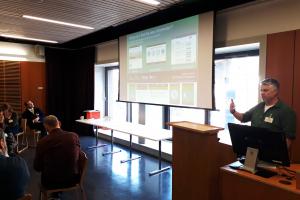
The challenge of envisioning the future climate of Scotland has been made easier due to a new set of climate change projections for the UK (UKCP18). Climate change is likely to substantially alter many aspects of our lives, our environment and economy. Therefore, it cuts across many policy domains and all sectors. The new projections present an opportunity for improving our ability to research climate change impacts, plan for adaptation and explore opportunities for mitigation and adaptation.
At a recent SEFARI Gateway Responsive Opportunity Funded workshop (in March), researchers met with individuals from the Scottish Government and agencies, local authorities and the private sector to discuss the UKCP18 and how the benefits of its use in Scotland may be improved through collaboration. There was recognition that the UKCP18 is a substantial resource to support all sectors in preparing for climate change, but that its use is challenging, and in this blog Dr Mike Rivington from the James Hutton Institute explores the concept of developing a ‘UKCP18 Scotland User Group’ to help facilitate collaboration for improved understand and sharing of knowledge.
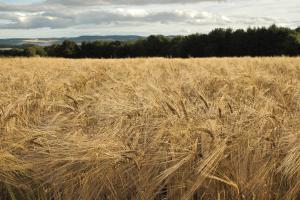
We are pleased that Bob Rees, Scotland’s Rural College is able discuss reducing greenhouse gas emissions from cropping systems. This post was originally published by the Scottish Parliament’s Information Centre (SPICe), who commissioned SEFARI to write a series of blogs to stimulate debate on this issue. SEFARI research takes a collaborative approach and looks at this complex and challenging issue from multiple perspectives, including improving animal health, the role of precision agriculture and changing dietary intake to reduce greenhouse gas emissions.
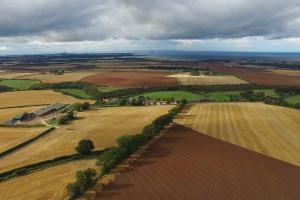
We are pleased that Andrew Barnes and Vera Eory, Scotland’s Rural College are able to discuss the role of precision agriculture in reducing greenhouse gas emissions. This post was originally published by the Scottish Parliament’s Information Centre (SPICe), who commissioned SEFARI to write a series of blogs to stimulate debate on this issue. SEFARI research takes a collaborative approach and looks at this complex and challenging issue from multiple perspectives, including improving animal health, changing dietary intake, and the role of cropping systems to reduce greenhouse gas emissions.
We are pleased that Jennie Macdiarmid, the Rowett Institute is able to discuss the links between what we eat and our climate change commitments. This post was originally published by the Scottish Parliament’s Information Centre (SPICe), who commissioned SEFARI to write a series of blogs to stimulate debate on this issue. SEFARI research takes a collaborative approach and looks at this complex and challenging issue from multiple perspectives, including improving animal health, as well as the role of precision agriculture and cropping systems in reducing greenhouse gas emissions.
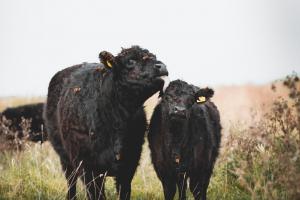
We are pleased that Philip Skuce, SEFARI Gateway and Moredun Research Institute and Michael MacLeod, Scotland’s Rural College are able to discuss how improving animal health can reduce the impact of livestock on climate change. This post was originally published by the Scottish Parliament’s Information Centre (SPICe), who commissioned SEFARI to write a series of blogs to stimulate debate on this issue. SEFARI research takes a collaborative approach and looks at this complex and challenging issue from multiple perspectives, including the role of precision agriculture, cropping systems and changing dietary intake to reduce greenhouse gas emissions.
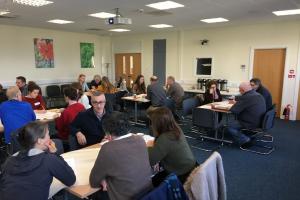
Following on from my earlier blog, the two workshops on extreme climate change scenarios were held at the James Hutton Institute on the 29th of January and 5th of February 2019, as planned. The workshops were intended to drive discussion about possible future research challenges in relation to climate change, and to identify ways in which different stakeholders might tackle these challenges.
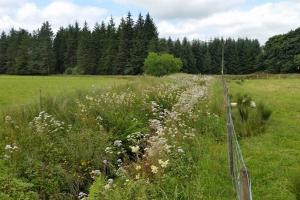
Ahead of this week's Land Use Conference, which has been part-funded by the SEFARI Gateway Responsive Opportunity Fund, we are delighted Professor Davy McCracken can share his recently published thoughts on rewarding the delivery of public goods. The conference takes place on 28-29th November 2018 at Dynamic Earth, Holyrood Road, Edinburgh.
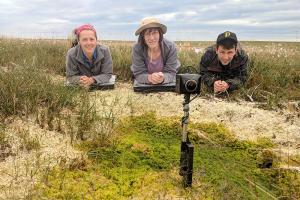
We are pleased that Dr Rebekka Artz and Gillian Donaldson-Selby, The James Hutton Institute can share their experiences on making a new 360° film about the importance of peatland restoration for helping to mitigate climate change. Rebekka and Gillian led a project team who were awarded SEFARI Gateway Responsive Opportunity Funds (ROF) to create this film. This film was premiered at the IUCN Peatland Programme 2018 conference.
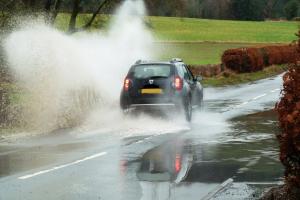
This week is Climate Week, which seeks to raise awareness of the issues and highlight how Scotland is a world leader in trying to tackle climate change. Here at SEFARI, the topic of climate change is very important to us and we deliver a wide research programme on the measurement, modelling and mitigation of greenhouse gas emissions. We also recognise it is an issue that needs a strong collective effort and we are delighted that in this blog Dr Matt Aitkenhead outlines a workshop he is organising to do just this.
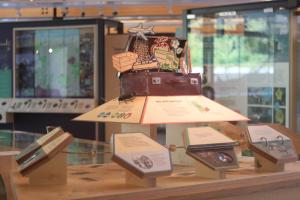
We are pleased that Dr Katy Hayden, Plant Health Officer, Royal Botanic Garden Edinburgh (RBGE), can tell us more about a new interactive public exhibit on plant and animal biosecurity at the RBGE. Katy led a project team who were recently awarded SEFARI Gateway Responsive Opportunity Funds (ROF) to create this display.
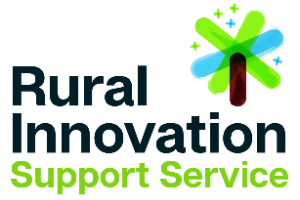
We are delighted that Megan Welford, Farming and Land Use Communications Manager, Rural Innovation Support Service (RISS), can tell us about this new service. RISS is getting the right people together to make a difference to rural businesses across Scotland and they’d like even more researchers to help by sharing their expertise.

Working in research we regularly need to focus on the detail, but it is still important to take a step back and look at the bigger picture - so for this year’s Royal Highland Show we decided to use technology to help.
Pagination
Blog
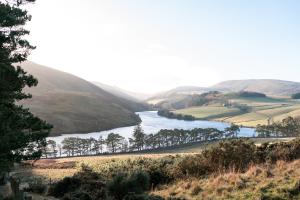
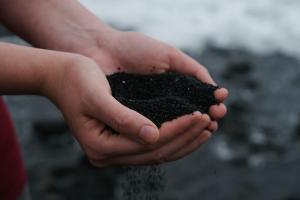
On April 14th, 1935, the largest dust storm in American history occurred. A black cloud carrying 300,000 tons of topsoil from the Great Plains deposited dust as far away as New York.
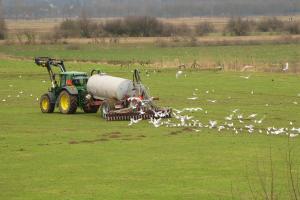
Domestic agriculture provides most of our food consumption and contributes to export revenues and rural livelihoods. At the same time, it is a key sector where management and production changes can reduce pressure on the environment, including air, water, climate and biodiversity.
